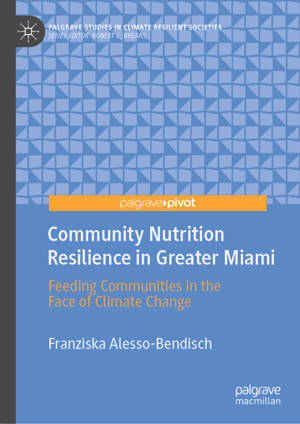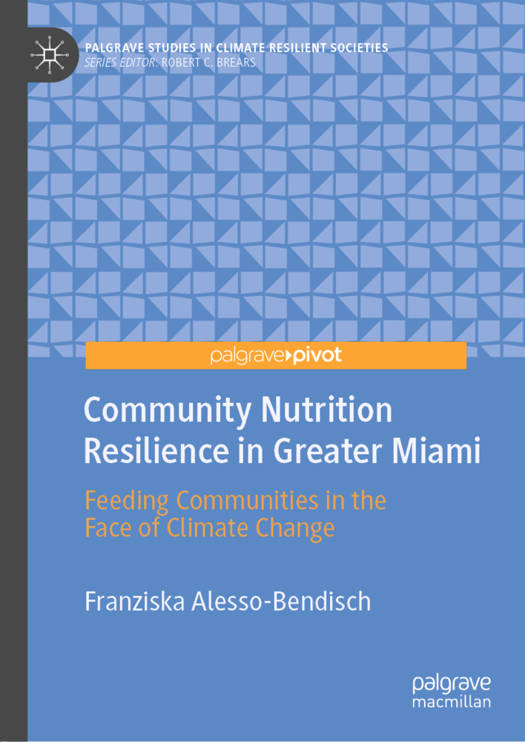
Je cadeautjes zeker op tijd in huis hebben voor de feestdagen? Kom langs in onze winkels en vind het perfecte geschenk!
- Afhalen na 1 uur in een winkel met voorraad
- Gratis thuislevering in België vanaf € 30
- Ruim aanbod met 7 miljoen producten
Je cadeautjes zeker op tijd in huis hebben voor de feestdagen? Kom langs in onze winkels en vind het perfecte geschenk!
- Afhalen na 1 uur in een winkel met voorraad
- Gratis thuislevering in België vanaf € 30
- Ruim aanbod met 7 miljoen producten
Zoeken
Community Nutrition Resilience in Greater Miami
Feeding Communities in the Face of Climate Change
Franziska Alesso-Bendisch
€ 91,95
+ 183 punten
Omschrijving
This book conceptualizes community nutrition resilience as a critical area that is currently lacking the attention it requires from both the public and private sectors. The book spotlights Greater Miami's resilience efforts, both responding to slowly developing challenges such as immigration, environmental deterioration, and the wealth distribution gap, as well as sudden disasters such as hurricanes or flooding driven by climate change. Drawing on existing literature as well as interviews with professionals working in the field, the author makes recommendations on how to incorporate food systems into urban resilience planning, how to prioritize resilience on urban food agendas, and how to strengthen food system resilience through public, private, and third sector level engagement. She also highlights how the availability of and access to nutritious food impact the health, performance, and well-being of communities in the region, thus making a strong case for the prioritization of thisgrowing issue.
Specificaties
Betrokkenen
- Auteur(s):
- Uitgeverij:
Inhoud
- Aantal bladzijden:
- 218
- Taal:
- Engels
- Reeks:
Eigenschappen
- Productcode (EAN):
- 9783030274504
- Verschijningsdatum:
- 20/09/2019
- Uitvoering:
- Hardcover
- Formaat:
- Genaaid
- Afmetingen:
- 148 mm x 210 mm
- Gewicht:
- 539 g

Alleen bij Standaard Boekhandel
+ 183 punten op je klantenkaart van Standaard Boekhandel
Beoordelingen
We publiceren alleen reviews die voldoen aan de voorwaarden voor reviews. Bekijk onze voorwaarden voor reviews.









